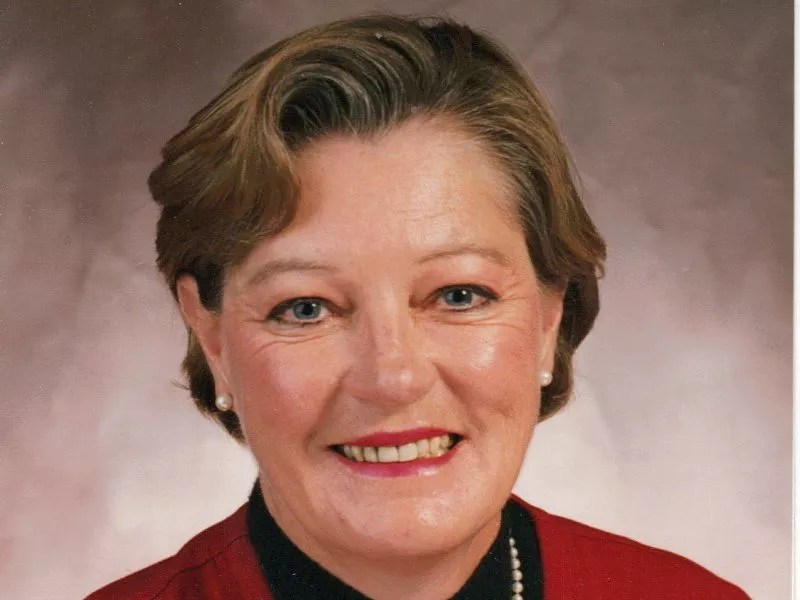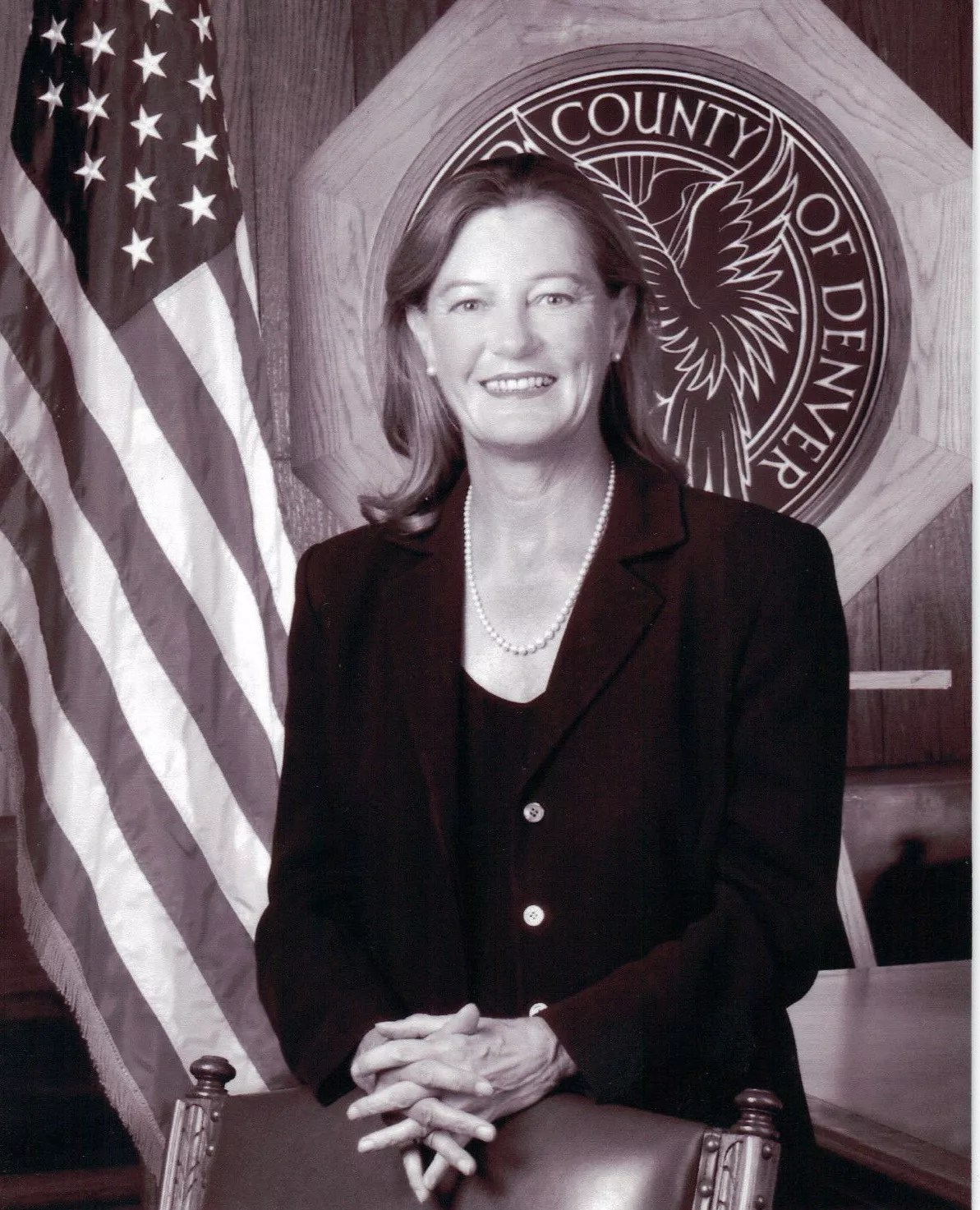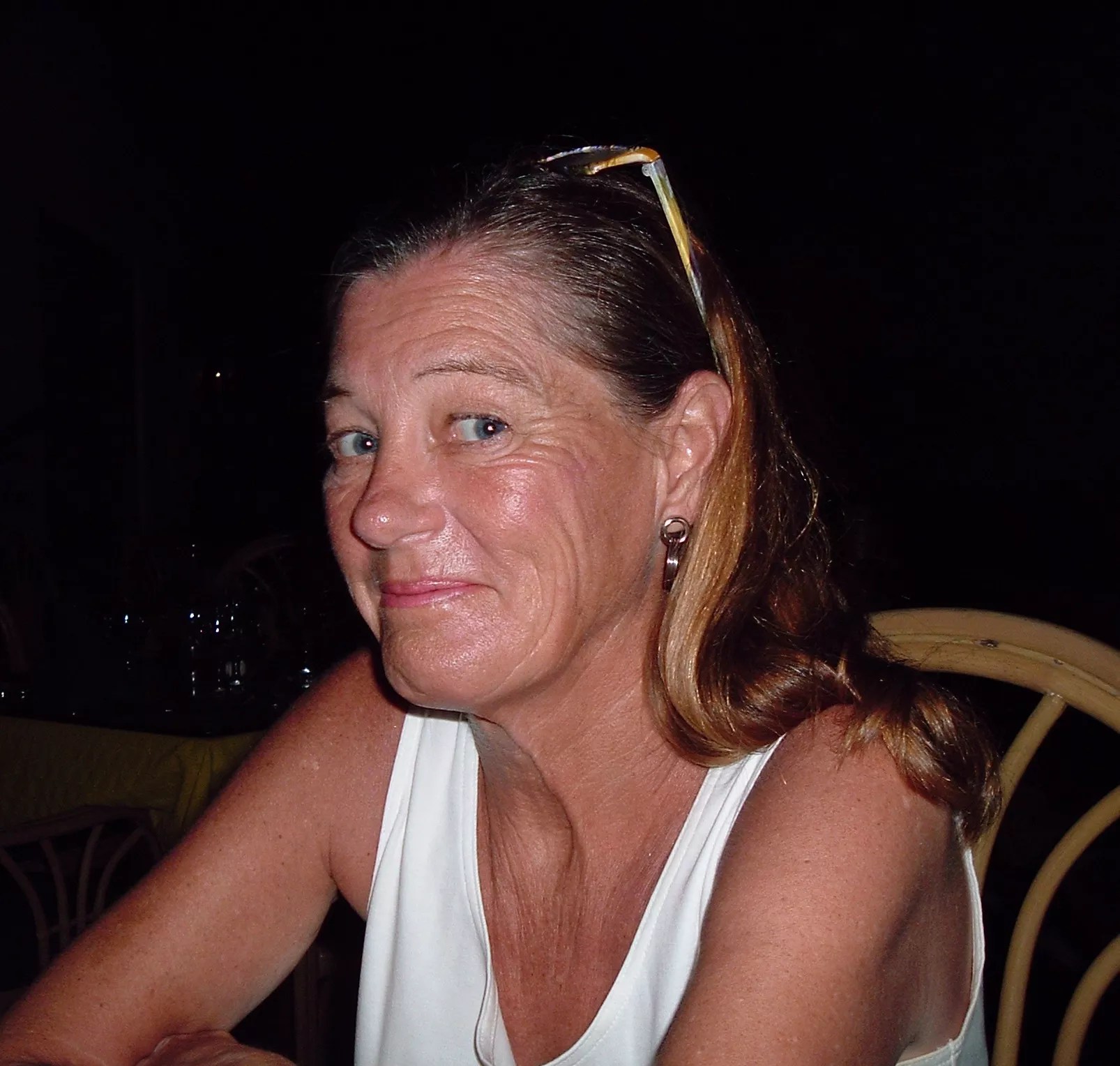
Courtesy Rick Reynolds

Audio By Carbonatix
A frustrated constituent, aggravated over yet one more big-ticket, steel-and-bricks project being driven forward by Denver City Councilwoman Cathy Reynolds, got in her face and said, “You know what your problem is? You never saw a project you didn’t like.”
Reynolds, sharp as a tack and quick as a whip, retorted, “No, YOU never saw a project I didn’t like.”
Such was the self-confidence of someone who is arguably the most consequential councilmember Denver’s ever had. A lit cigarette in one hand and a glass of wine in the other, a golf bag often over her shoulder, Reynolds steered big projects and sweeping social reforms through the legislative process as skillfully as she steered her little red Mazda Miata back and forth from the City and County Building to the Park Hill home she shared with husband Rick.
Reynolds’s passing last week, four days before her 76th birthday, set off a flood of reminders of her groundbreaking achievements for this city – all of them in collaboration with many (certainly not all!) of the 38 other members who served with her during her tenure, and marshaled by her inimitable skill at counting to seven. Reynolds’s record is a reminder that political persuasion requires working with people you sometimes vote with and sometimes against, but whom you always respect.
Whether it was in her smoke-filled office down the private hallway from the council chamber (Reynolds ignored the ban on indoor smoking, saying she was the boss of her own space), on the floor of council, out in the community or over drinks and snacks with colleagues and lobbyists at the Cherokee Bar and Grill after every Monday night meeting, Reynolds worked to put together winning partnerships to advance her initiatives.
Before Reynolds in 1975, no woman had ever been elected to Denver City Council in its 116 years of existence. One woman – Elisa Palladino – served for two months in 1935 after being appointed by Mayor George Begole to a vacancy following the death of a north Denver councilman, and she didn’t seek election that year. But with the 1975 election of Reynolds and another Cathy – Donohue, who represented the Capitol Hill district for twenty years – the floodgates were open. More than half of the individuals elected to city council since then – 31 of 56 – have been women.
Both Cathys were forces to be reckoned with. Reynolds holds the distinction of being the first woman elected to council by virtue of winning the second at-large seat outright in May 1975, defeating one of the two incumbents, Linden Blue. (Reynolds and the other winner that year, Steve Grogan, are the only candidates ever to defeat an at-large incumbent.) Donohue won her District 10 seat a month later through a runoff. Both she and Reynolds were sworn in that July.

Cathy Reynolds in the chamber that other councilmembers would like to see named for her.
Courtesy Rick Reynolds
Reynolds will forever hold the distinction of having the longest continuous tenure on the council; term limits now guarantee that. She was elected seven times, leaving office in 2003 after serving 28 years and two weeks. She holds the record by two weeks over southeast Denver Councilmember Paul Hentzell, who also served seven full terms, from 1955 to 1983. Reynolds’s two extra weeks came thanks to a charter change after the mayoral runoff of 1991, which added two more weeks until inaugurations to give more time for transitions to new administrations.
But longevity isn’t why Reynolds ought to be remembered. It’s what she did with it.
The constituent who complained about Reynolds pushing big projects could have been crabbing about her leading roles in building Denver International Airport, or Coors Field, or the new Mile High Stadium, or the Colorado Convention Center, or the Hyatt Regency Hotel at the convention center, or Boettcher Hall – so many of the public projects that have contributed to the quality of life in Denver.
But from my seat, Reynolds ought to be remembered for her advancement of social reforms that contribute more to the quality of life than any stadium, concert hall or airport ever could.
When she took office, it was illegal for gay couples, or any unmarried couples, to live together in Denver’s most exclusive neighborhoods. It was legal to own any type of high-capacity assault weaponry. People with developmental disabilities had few resources for services. Equal rights for the LGBTQ community were only a slogan.

Rick Reynolds’s favorite photo of his wife.
Courtesy Rick Reynolds
Reynolds worked with any ally she could find to change all that. Today, through her leadership, Denver has a 1-mill property tax levy that improves the lives of people with developmental disabilities. Her push for a ban on certain assault weapons in the late 1980s brought down hundreds of threats to her safety but resulted in legislation that withstood court challenges and attacks from state lawmakers. With a coalition of council supporters, she won a change in zoning laws that opened all neighborhoods to gay couples.
And in 1990, she spearheaded one of the nation’s first equal-rights laws that resulted in benefits for LGBTQ individuals. Challenged later by an initiative for repeal by opponents who invoked Martin Luther King Jr. as a supposed opponent of gay rights, Reynolds solicited a letter from his widow, Coretta Scott King, stating not so: Her husband stood for equality for all! Denver voters upheld the law. And when it led quickly to Amendment 2, a statewide initiative in 1992 that called for outlawing gay-rights legislation, which passed and resulted in Colorado being called the “hate state,” Reynolds watched with pride when it all ended with victory at the U.S. Supreme Court, which determined that Amendment 2 was unconstitutional.
In Reynolds’s words: “I’ve been saying for years that I sponsored the law on council that started all the trouble, and I’m proud of it, because Denver’s law really was the first. And I’m thoroughly proud of it. But it wasn’t just me. It was the people who came to my office, it was all of the members of that council who stood up and voted for it despite the threats and intimidation; it was the mayor and his staff and the voters of Denver, the Colorado Supreme Court and finally the U.S. Supreme Court.
“We keep moving forward. Perhaps sometimes not fast enough, but at least we move forward.”
Councilwoman Debbie Ortega served with Reynolds for sixteen years, from 1987 to 2003, when term limits kicked in and forced ten incumbents, including Ortega and Reynolds, off the body in the biggest sweep of institutional knowledge the city had seen. Debbie is now my colleague on council, having run anew in 2011 and now serving her third and final term. She can equal Reynolds in total, if not in continuous, tenure. She was a core ally with Reynolds in so many of the votes that moved Denver forward.
As city hall reporter at the Rocky Mountain News, I got to watch and chronicle all of them, sitting in the council chamber each week and listening in during the after-meeting at the Cherokee – by mutual agreement, off the record unless I could backfill any tips starting Tuesday morning. I got to see members who’d fought like cats and dogs a half-hour earlier sit down over a glass of wine or other adult beverage and look for something on which they could work together later. It was an education for me in the power of collaboration, leaving personalities outside the door and respecting the office.
Debbie and I have talked periodically about naming something in Reynolds’s honor. As an at-large member, Reynolds had no separate district to call her own – no branch library, park, rec center or city office building such as those named for colleagues Elvin Caldwell, Hiawatha Davis, Bill Scheitler, Sal Carpio, Sam Sandos and Elbra Wedgeworth. But there is no question Reynolds deserves such recognition.
We believe the most fitting place to memorialize her service to the city is to name the place where she did her work, where she wielded the gavel five times as president of Denver City Council – the chamber on the fourth floor of the City and County Building, the room where there already is a bronze plaque recognizing seven-term colleague Paul Hentzell – the Cathy Reynolds Council Chamber. There is a process in the city code for doing this, and it’s been followed in such instances as naming the building’s former law library in honor of the late John Parr and Sandy Widener.
Our only regret will be that Cathy Reynolds didn’t live long enough to see it done.
Kevin Flynn, longtime City Hall reporter for the Rocky Mountain News, was elected to Denver City Council in 2015 to represent District 2 in the southwest part of the city, and re-elected in 2019.